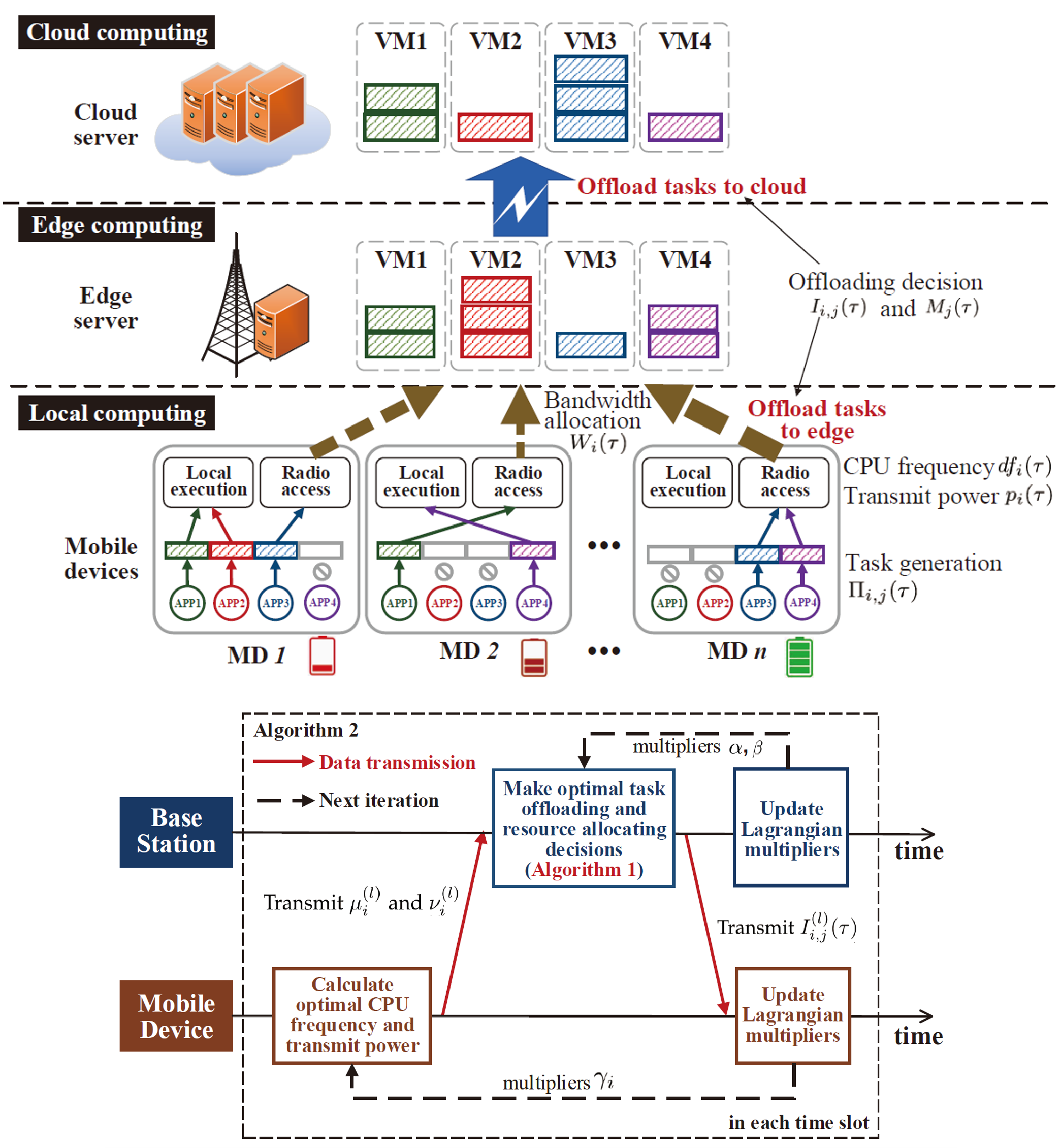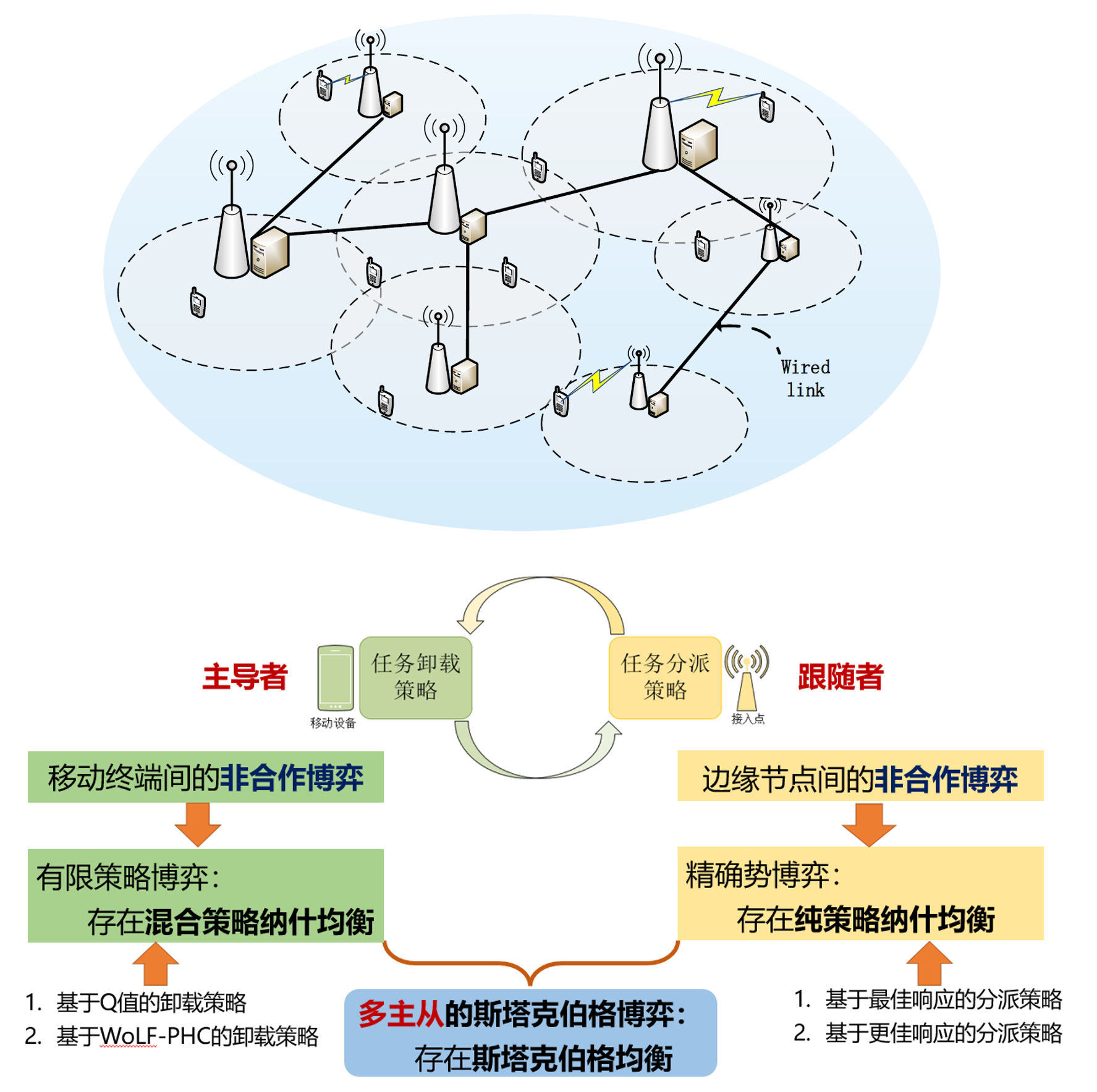-
Abstract——Due to the explosion of mobile devices and the evolution of wireless communication technologies, novel applications with intensive computation demands and low-latency requirements have arisen. Edge computing has been proposed as an extension of cloud computing, which moves computation workloads from remote cloud to network edge. Cooperating edge computing and cloud computing can significantly reduce the latency of computation tasks. However, considering the heterogeneity and stochastic arrivals of tasks and the limited computation and communication resources on the edge, task offloading and resource allocation are two joint crucial problems in an edge-cloud orchestrated computing system. In this paper, we propose an online task offloading and resource allocation approach for edge-cloud orchestrated computing, with the aim to minimize the average latency of tasks over time. We firstly build system models to analyze the latency and energy consumption incurred under different computing modes and formally formulate the joint problem as a mixed-integer optimal decision problem. Then, we employ Lyapunov optimization and duality theory to decompose the problem into a set of subproblems, which can be solved in a semi-decentralized way. We also formally analyze that our approach can achieve near-optimal performance. Extensive simulations are conducted to verify the superiority of our approach.
-
Abstract——Multi-access Edge Computing (MEC) comes forth as a promising computing paradigm to meet the low-delay requirements of computation-intensive applications. In this work, we focus on the task offloading and dispatching problem in MEC, where mobile devices (MDs) can decide to execute tasks locally or offload them to access points (APs), and each AP can dispatch its received tasks to other APs. Specially, we consider both APs and MDs are selfish, which aim to minimize their respective task completion delay. The problem is particularly difficult, as there exists computing resource competition among MDs and APs, respectively. Furthermore, the offloading decisions made by MDs and the dispatching decisions made by APs are interactive. To overcome the challenges, we first formulate the problem as a multi-leader multi-follower Stackelberg game, and rigorously prove the existence of a Stackelberg equilibrium. Then, we propose an efficient approach to achieve a Stackelberg equi-librium, which includes a Q-learning based offloading strategy for MDs and a best response based dispatching strategy for APs. We also demonstrate an upper bound of the total completion delay achieved by our approach with a constant approximation ratio. Extensive simulations are also conducted to show the performance of our approach, compared with baselines.
<
>

